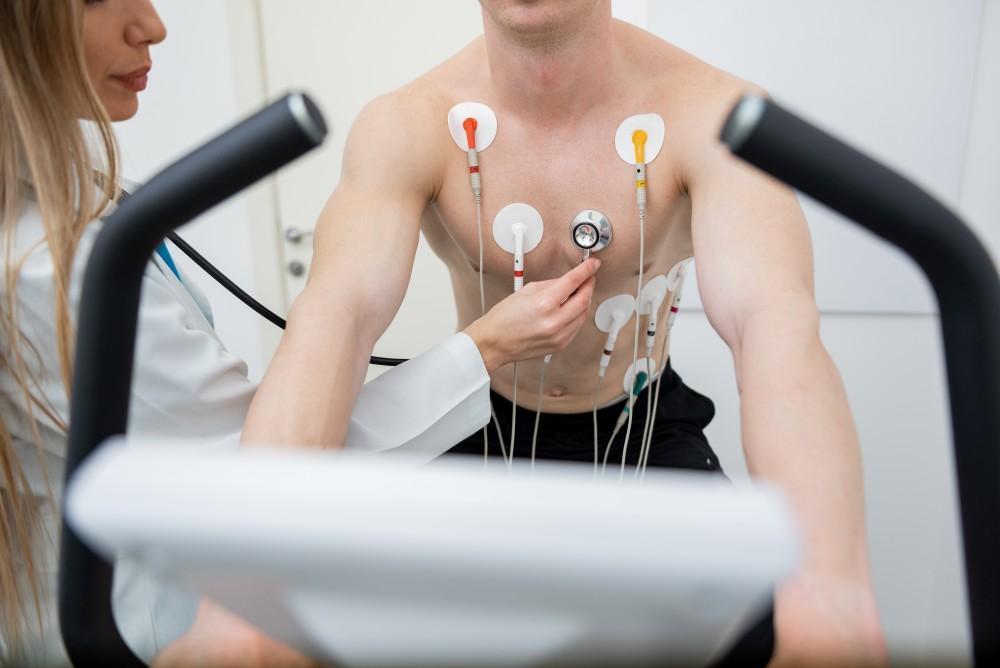
Is an Irregular Heartbeat Dangerous?

Electrocardiograms (EKG) are noninvasive, painless tests that reveal information about your heart. The EKG reading can provide information about your heart rate and rhythm, if you’ve had a previous heart attack, and if there’s adequate blood flow reaching your heart. It can also tell you if you have an irregular heartbeat.
If you have any abnormal EKG readings 一 or if any irregular heartbeats are detected 一 Dr. Henock Saint-Jaques reviews the information and uses it to shape your treatment plan.
In the meantime, continue reading to learn more about irregular heartbeats, what they really mean, and how we can help treat them here at Harlem Cardiology.
All about irregular heartbeats
An irregular heartbeat is also known as an arrhythmia. It includes any heartbeat that deviates from the normal range. Your heart relies on electrical signals to control the beating of your heart, and any faulty electrical signaling can affect your heartbeat.
Arrhythmias are categorized by what type of irregularity (fast or slow) is detected on your EKG:
- Tachycardia, a too-fast heartbeat over 100 beats per minute (BPM)
- Bradycardia, a too-slow heartbeat that’s less than 60 BPM
- Irregular, in which your heartbeat isn’t predictable
Each of these categories is further broken into more specific diagnoses, such as bradyarrhythmias, atrial fibrillation, atrial tachycardia, and atrioventricular nodal reentrant tachycardia.
Note: Your heartbeat can be irregular and too fast (or slow), but it can also beat at the right speed but just irregularly. It might, for example, skip a beat.
What causes irregular heartbeats?
Your heartbeat can become irregular for many different reasons, including medication. According to the American Heart Association, anticancer medication, antidepressants, antihypertensives, and vasodilators are a few examples of medications that contribute to slower than normal heartbeats. Drugs that may cause atrial tachycardia include caffeine, decongestants, and bronchodilators. These lists are not exhaustive, but you should be aware if you’re on any medication that lists irregular heartbeats as a potential side effect. Let your prescribing provider know if you experience any side effects from any of your medications.
Sometimes irregular heartbeats aren’t caused by medication. Your heart might race faster if you’re nervous. Anxiety can make you experience heart palpitations, which is when your heart skips a beat or flutters. Thyroid disorders and COVID-19 infections can also affect your heartbeat. Typically, treating the underlying condition can help address heartbeat irregularities.
In these cases, irregular heartbeats can be dangerous if they are related to a problem with the function of your heart. Heart-related issues that cause arrhythmias include:
- Having a current heart attack
- Scarring from a past heart attack
- Blocked arteries in your heart
- Changes to your heart's structure, e.g. including changes due to cardiomyopathy
- Having high blood pressure
Again, these are just a few examples of conditions that contribute to irregular heartbeats. Only a thorough exam and review of your EKG can paint the full picture of what’s causing your irregular heartbeat.
Is it dangerous?
Generally speaking, irregular heartbeats shouldn’t be ignored. Having an irregular heartbeat can pose dangerous complications, and that’s especially true in the case of heart block. Heart block 一 also known as atrioventricular (AV) block 一 is a type of arrhythmia that affects both your heart rate and rhythm. In its most severe form, Type III, the electrical signal from your atria to your ventricle is blocked. Untreated heart block can lead to syncope (fainting), dizziness and lightheadedness, and even sudden cardiac arrest.
Anything that compromises the function of your heart and its ability to pump blood throughout your body can increase your risk of experiencing a dangerous cardiac event, such as going into cardiac arrest or having a heart attack.
What happens if you have an irregular heartbeat
The first step is to determine what’s causing your irregular heartbeat. Depending on the root cause, you may find that avoiding your trigger (such as caffeine) is enough to restore a normal heartbeat. You may also find that your symptoms go away once any underlying conditions are treated.
If your irregular heartbeat isn’t due to medication or an underlying medical condition, we can advise you on the right treatment available to you here in our Madison Avenue office. Depending on the results of your EKG and your overall medical history, Dr. Saint-Jacques may recommend that you receive a pacemaker to help regulate your heartbeat.
Questions about your heartbeat? Call us at 646-381-2181 to book an appointment. You can also book an appointment online.
You Might Also Enjoy...


Is It Possible to Lower My Blood Pressure Naturally or Do I Need Medicine?

What You Can Do Now to Prevent a Stroke Later in Life

3 Noninvasive Tests That Measure the Health of Your Heart

What Can I Do About My Varicose Veins?


